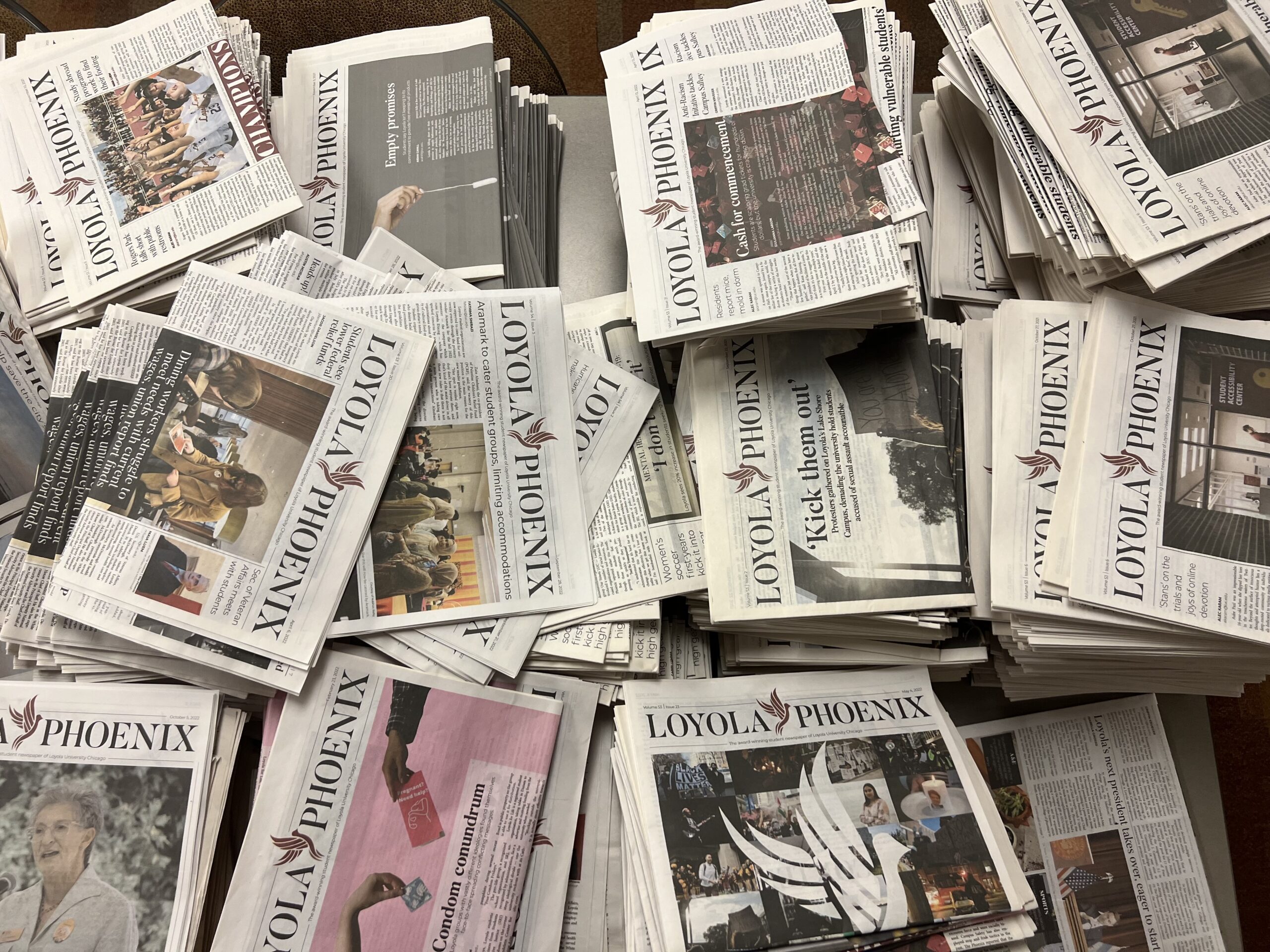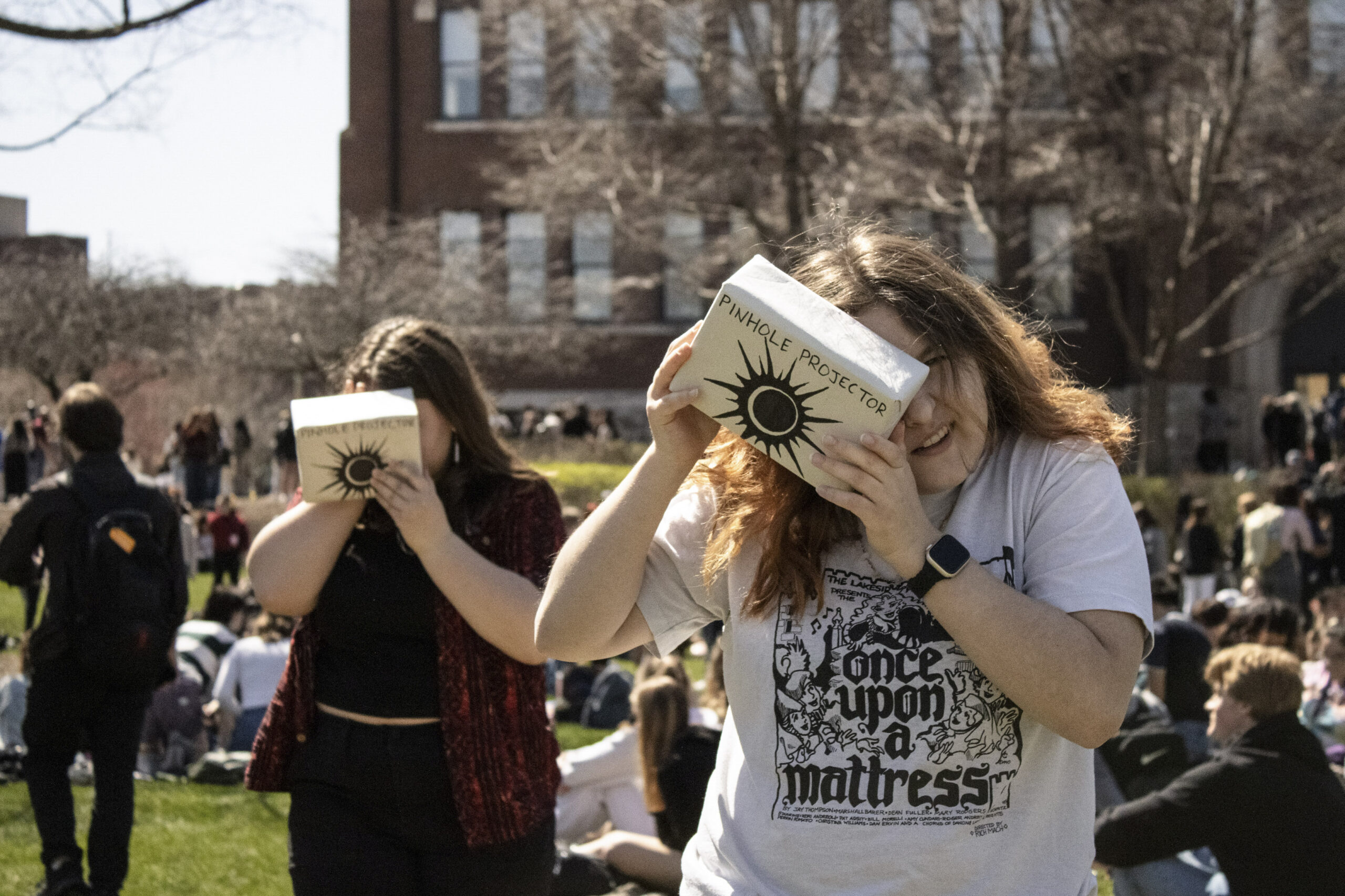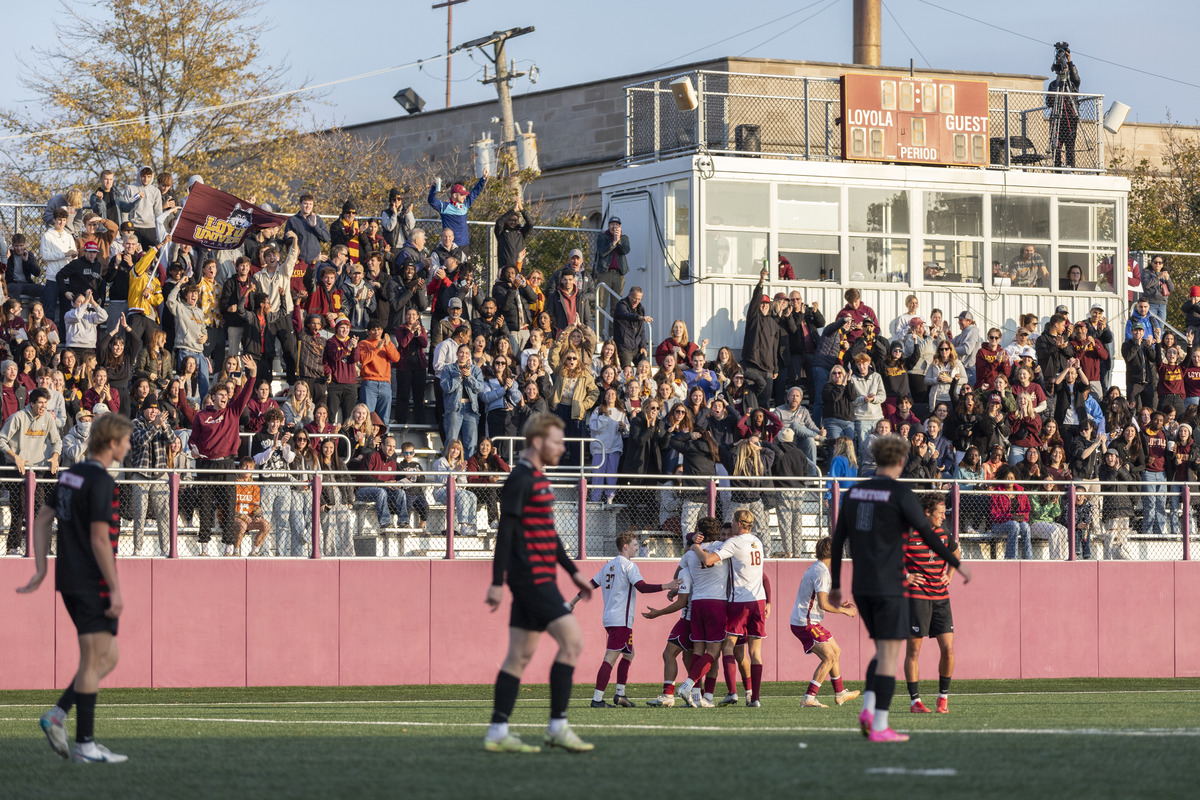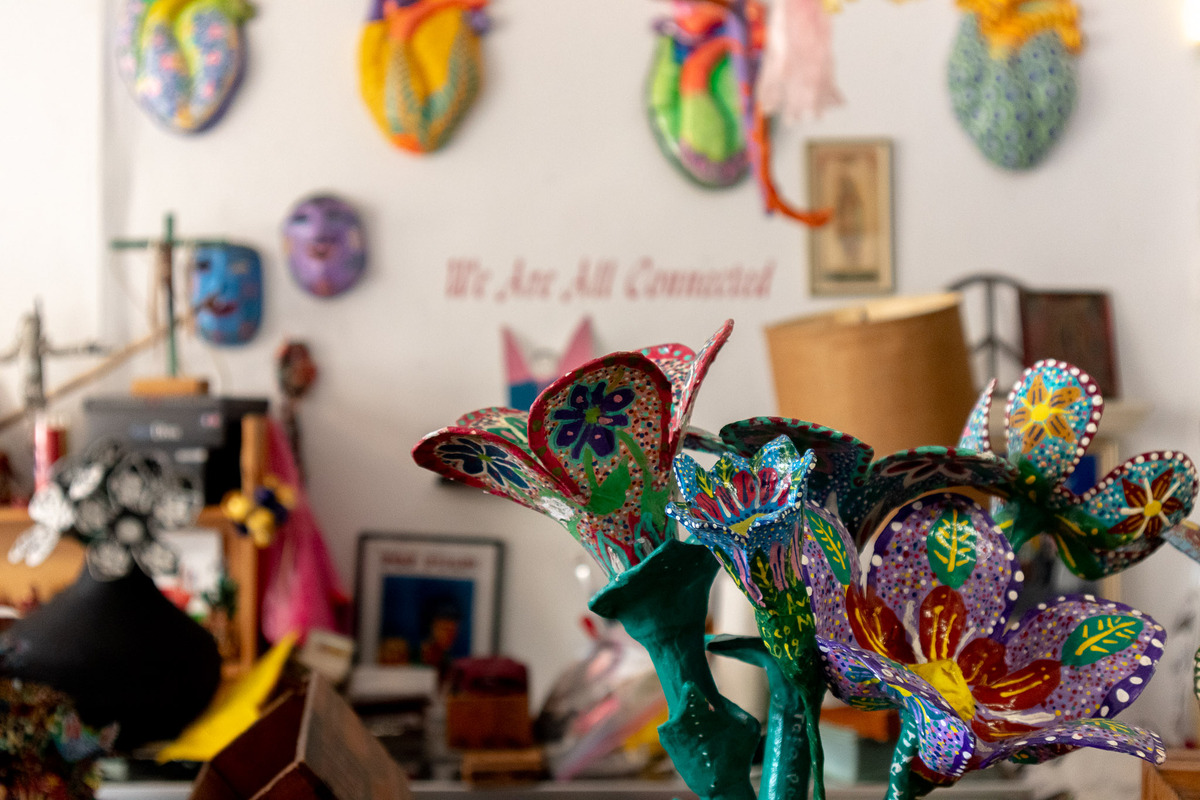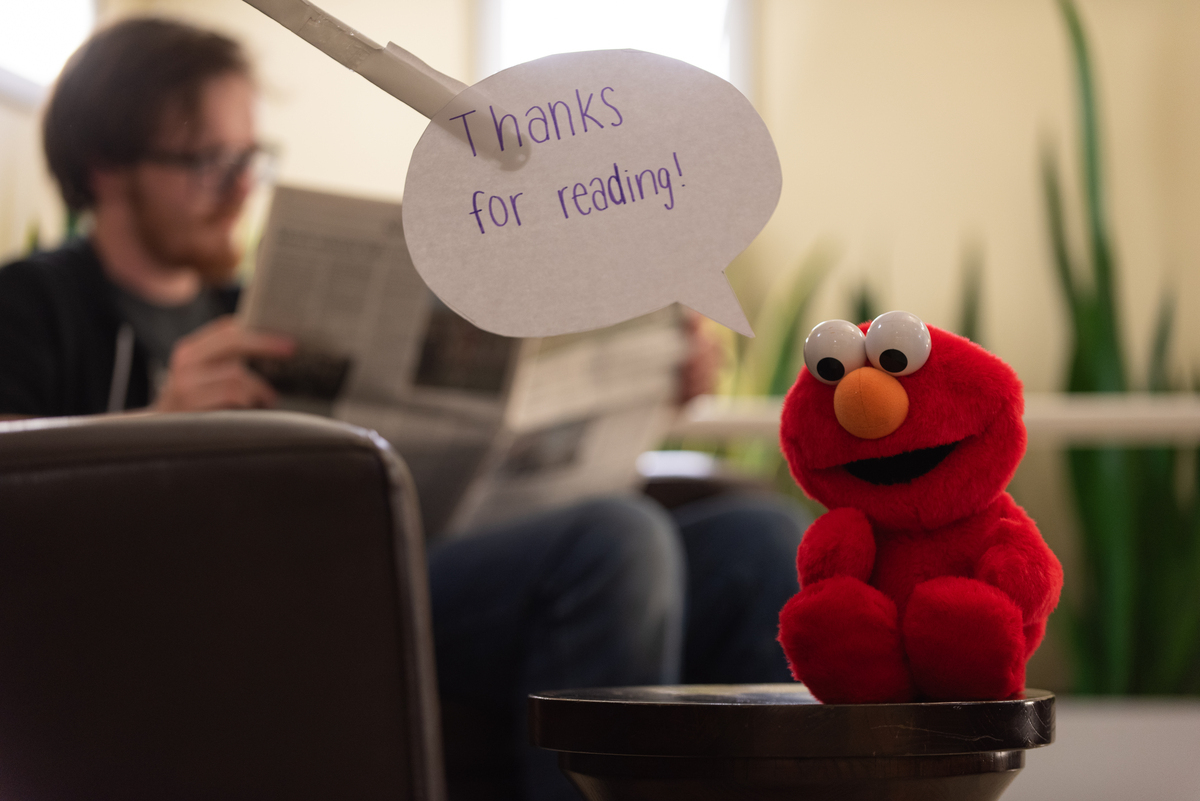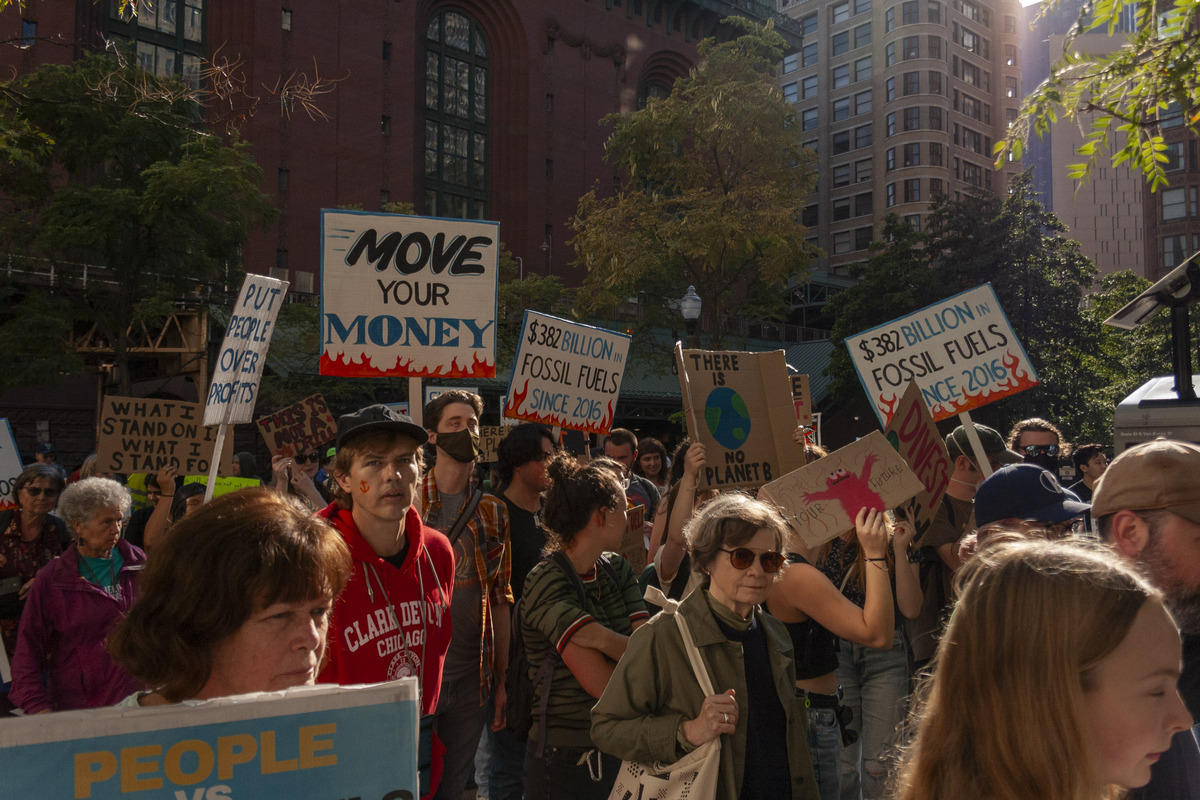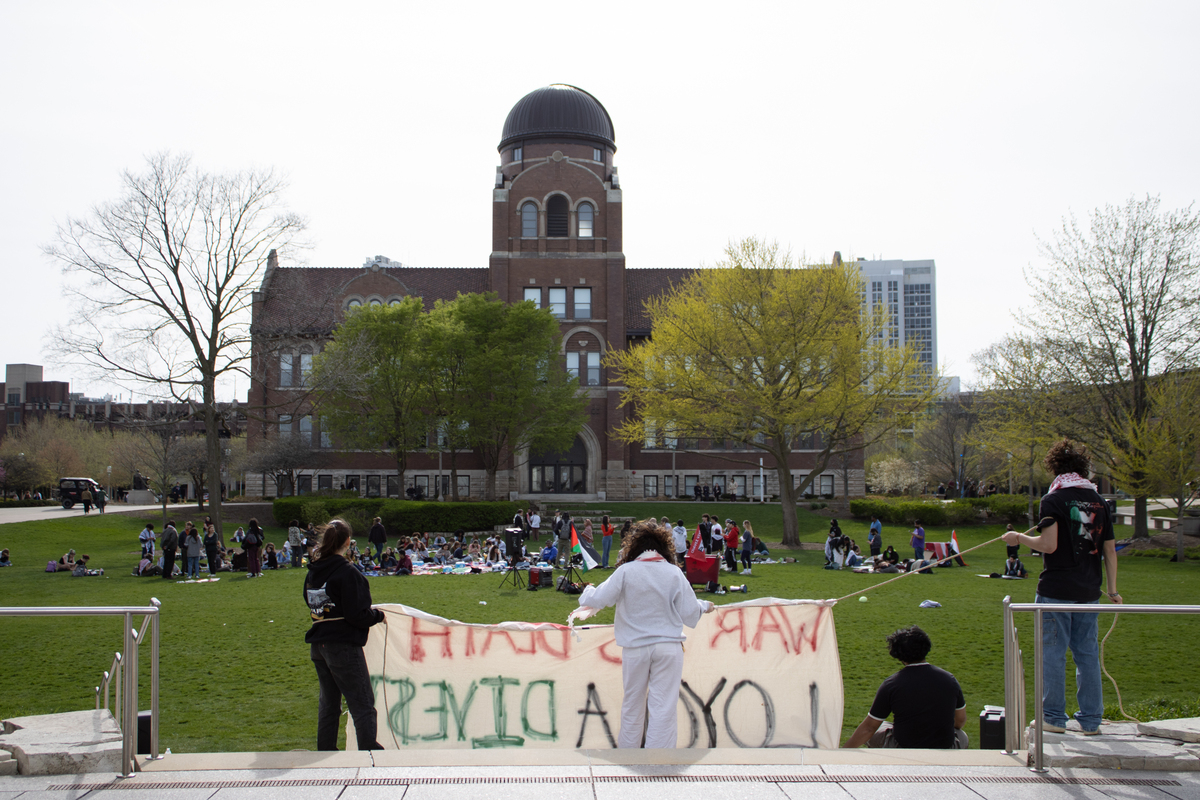Rev. Jerry Overbeck has become a fixture at Loyola, serving as a professor, a chaplain — and a wedding officiant.
“Love ought to manifest itself in deeds more than words.”
This message, championed by St. Ignatius of Loyola, extends beyond romantic displays, verbal utterances of “I love you” or passionate text exchanges. For the Rev. Jerry Overbeck, who is celebrating 51 years of priesthood, the words from Loyola’s namesake signal a commitment to love through action.
Overbeck said he’s officiated hundreds of weddings, estimating about 95% are for Loyola alumni, of which he is himself. He received his undergraduate degree in classics from Loyola in 1970 and returned as a faculty member in 1976. Since then, he’s lived in Mertz, Simpson, Regis and Baumhart halls, taught in the Department of Theology and become chaplain of the School of Law.
While he doesn’t know the exact number of weddings he’s performed, Overbeck said he’s completely booked on most warm weekends — and a few cold ones, too.
“It’s like a visible embodiment of God’s presence right here on Earth — kind of love incarnate,” Overbeck said. “I sometimes sit and marvel at how this all happened. It’s such a mystery, so many gifts.”
Overbeck said his engagement with each couple begins long before their wedding day and extends far beyond it.
Lexy Story, who graduated in 2010, kept in contact with Overbeck — nicknamed “Father J” — since he taught her Intro to Christianity class in 2008. In the early stages of dating her now-husband Connor Story in 2017, she introduced him to Overbeck and the two soon formed a strong bond.
Lexy Story said It was a “no-brainer” to have him officiate their wedding in 2018. Within a week of getting engaged, she said the wedding planning process began by scheduling a wedding with Overbeck — she told him the wedding couldn’t happen without his attendance.
“We have 10 years of a relationship where there’s good and bad that he has been there through,” Lexy Story said. “It was like, of course he has to be there. Of course he has to preside at one of the biggest days of my life.”
After Overbeck agrees to officiate a couple’s wedding, he said he meets with them multiple times throughout their engagement, guiding them through various paperwork prerequisites and Catholic pre-marriage programs like FOCCUS and PreCana. These programs follow extensive questionnaire formats that provide couples with a summarized view of each partner’s outlooks on various life topics, according to Overbeck.
“It is a good way, I think, to get a sense of how solid your foundation is,” Overbeck said. “You grow in confidence, plus you think through so many different dimensions of what it means to get married and married life.”
Emotional intimacy and religion are two spaces Overbeck said many couples see as uncharted territory. If couples share physical things like their bodies and homes, they shouldn’t shy away from sharing their thoughts, feelings and faith, he said.
The stresses and monotonies of wedding planning can lead people to lose sight of what the day is really all about, according to Connor Story. Lexy Story said Overbeck reminds couples to hone in on what’s truly important instead of getting caught up in the details.
“No matter what happens on your wedding day, no matter if everything goes wrong, or everything goes right or anything in the middle, he’s like ‘You guys will be married. That’s all that matters, right?’” Connor Story said.
As wedding festivities begin, Overbeck said he highly values meeting a couple’s loved ones at the rehearsal dinner.
“It’s important for me to get a sense of who these principal players are — your mom and your family, your friends, the key wedding party people — because they’re so reflective of you,” Overbeck said. “It will help me lead prayer better and they’ll participate differently by getting a sense of me, as well. It goes both ways.”
On wedding day, Overbeck said he can be found where the people are. In many cases, that’s the reception dance floor.
He said many people are shocked to see a priest boogying or grabbing a beer, but he reassures them that priests are normal people, too.
Overbeck said he is committed to serving the Jesuit mission towards understanding people as whole, integrated beings. By making himself accessible in communal spaces, he said he can establish meaningful connections with people of all perspectives.
“Jesuits are supposed to be flexible and open to going where the greater need is,” Overbeck said.
At Loyola, Overbeck said he is called to the “greater need” in the Whole Foods coffee shop and nearby bars where he said he develops purposeful, supportive relationships with members across the community.
“I see more students, faculty, staff, administrators, alums, neighbors, baristas, bartenders in those two places than I ever see in my office here or in the law school, my classroom or church,” Overbeck said.
Connor Story said Overbeck’s “fresh perspective” on life often surprises people due to his devout priesthood, adding that Overbeck is “the most loving, generous, open,
open-minded” person he’s ever met.
“All that matters is that he can form a relationship with you,” Connor Story said. “I think his faith comes out through that but I also think it’s just a genuine friendship that he tries to foster with people.”
The Jesuit commitment to serving people where there is need is Overbeck’s Bat- Signal. Lexy Story said Overbeck is there for the significant life events, like weddings and baptisms, but he’s also there for the days that are “just normal.”
The Storys still keep up with Overbeck regularly, mostly through email and Zoom. He baptized their 2-year-old when he was a baby and will do the same for their newborn in April.
“There’s really no other way to put it — he’s just part of our family,” Lexy Story said. “He’s a part of so many people’s family. And I just think that that speaks volumes as to who he is as a person.”
Despite never being married himself, half a century of accompanying countless others through the journey has provided Overbeck a unique perspective on what love is and isn’t.
“We imagine we have more control than we really do, and so we think we can control somebody else in a relationship,” Overbeck said. “‘If I just put my head down and try harder, I’ll make this work,’ and I don’t think that’s the way love works. It’s learning how to give and receive in ways that are going to stretch you to vulnerability.”
Whether he’s facilitating legal and religious unions or grabbing a slice of pizza with a former student, Overbeck said he practices the commitment and love that he preaches.
Featured image by Lilli Malone / The Phoenix




